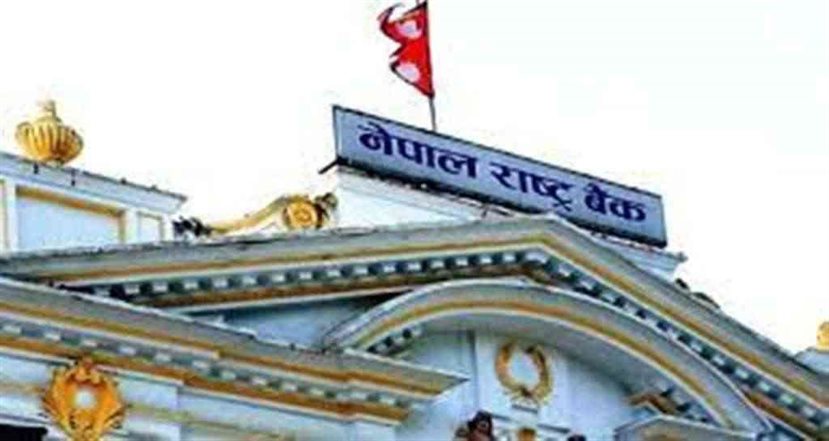Market Will Be Affected After The Tightening Of NRB, Which Company’s Share Price Will Fail?
27th May 2021, Kathmandu
Share market is the most emerging topic in today’s context. People from teenage to old age generally show their concerns and interest in the Shares and Share market. The share market is all about buying and selling shares, where Share represents a unit of ownership of the company from where you bought it.
Recently, Nepal Rastra bank announced a directive issue, and the investors understand that the market will be affected.
Despite the announcement in the monetary review, the directive issued by Nepal Rastra Bank on Tuesday is likely to have a direct impact on the share market.
The Nation had announced to increase the valuation of share pledge loan from 120 days to 180 days. Although this affected the market for a few days, the transaction amount was accelerating.
Some of the directives issued on Tuesday to implement the third quarter monetary review of the current year will further affect the market, sources said. The stock market was closed on Wednesday due to Buddhapurnima. He understands that the effect of the directive can be seen in today’s open market.
NRB has also modified the system of taking shares of microfinance as an investment made in the poor. At least 5 percent of the total investment should be given to the poor. Due to capital gains, banks and financial institutions had started raising shares of microfinance by more than five percent.
To control that, NRB has arranged that investment above 5 percent cannot be counted among the poor. This arrangement means that the share price of the microfinance company will fall.
However, some investors say that the 5 percent provision would not make much difference if understood in detail.”Not counting more than five percent doesn’t mean you can’t invest,” he said.”Therefore, it does not seem that the banks and financial institutions that invest after thorough analysis decide to sell everything right now.”
Another arrangement will have a positive impact on the stock market. Due to high liquidity, the short-term interest rate is now less than one percent. Banks and financial institutions were investing in the secondary market as the income would be very low. These investments made in recent days were short-term.
NRB has made arrangements to invest in the share market only for a period of more than one year. “Now, the investment was only for capital gain. As it happened, there was an investment in the company as well, ‘said a banker. Therefore, the share price will come down as the investment in such companies will be withdrawn.
Banks and financial institutions can buy shares of microfinance, insurance, hydropower, and others. Banks and financial institutions are not allowed to buy. Institutional investment of banks and financial institutions was the main reason for the recent rise in share prices of microfinance and hydropower. Now they are withdrawing that investment, and the market are affected.
But the immediate effect is not visible. NRB has given time till mid-July 2079 BS to sell the shares.
Many investors believe that the NRB’s rule that banks and financial institutions should only make long-term investments in the stock market and not invest in microfinance shares will reduce the market. “But this reduction is not going to last long,” the investor said. “It will only happen as a ‘reaction’ to the Nation Bank’s ‘action’.” He is of the view that the transaction amount will be less than the indicator.
The share of banks and financial institutions was up to Rs 3/4 billion when shares worth Rs 12/13 billion were bought and sold daily. Investor Ambika Prasad Poudel said that the transaction amount would decrease in the next few days.
Poudel said that the NRB had discouraged short-term investment as banks are more eager to make a profit from the stock market than to make a profit by expanding their business.
He is confident that the number of investors in the secondary market, increasing day by day, will make up for the shortfall, even though the transaction amount may decrease in a few days as banks and financial institutions are not allowed to do business directly.
Poudel believes that the supply of shares of good companies in the market will be less as banks and financial institutions invest in justified and more profitable shares and hold them for a long time. When supply is low, the market is less likely to decline abnormally.
Poudel claims that this policy is unpleasant for short-term general investors but will be fruitful for the future.
Technical analyst Bishnu Prasad Basyal said, “Currently, there is a trend of correction in the stock market and if the NRB’s directive weakens the investor’s psychology, the market is likely to decline in the coming days.”
Another experienced investor Shiva Chandra has written on social media that the NRB’s move has created a strong market maker in the market where there is a shortage of market makers.
Financial institutions were busy increasing their profits by investing in the stock market rather than their ‘core business. Although indeed, this has largely made the market move, he said that due to unhealthy activities, it has become impossible to distinguish between good and bad companies in the market. “Only by encouraging long-term investment in financial institutions is it time for good and bad companies to leave,” he said.






